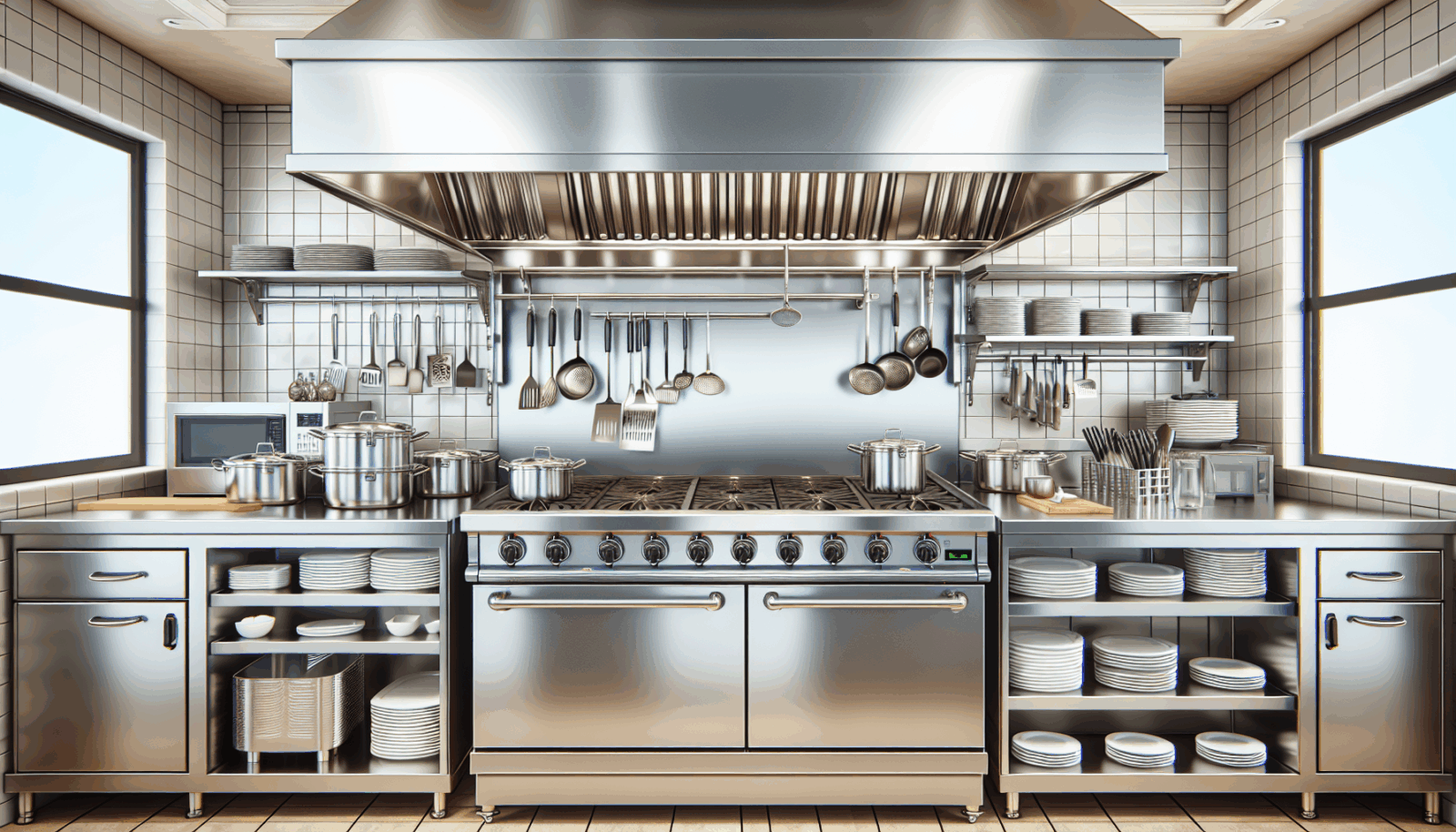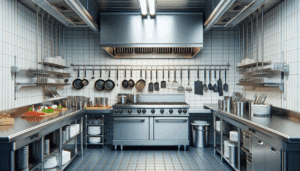Welcome to the ultimate guide on maintaining a Grease-free kitchen hood from the experts at Utah Hood Cleaning. Keeping your kitchen hood clean is not just about aesthetics; it’s essential for safety and efficiency, especially for homeowners. In this article, we will provide you with practical tips and insights to help alleviate the stress of dealing with a greasy kitchen hood. Let us take you on a journey to a cleaner, safer, and more pleasant cooking environment.
The Importance of Regular Kitchen Hood Maintenance
Regular maintenance of your kitchen hood is vital for several reasons. Firstly, it significantly reduces the risk of kitchen fires. Grease can accumulate quickly and, given the right conditions, can ignite and lead to a dangerous fire. By keeping your hood clean, you minimize this risk and protect your home and family.
In addition to safety, a clean kitchen hood improves airflow and enhances the efficiency of your kitchen’s ventilation system. This means that smoke, odors, and steam are more effectively removed from the kitchen, resulting in a more pleasant cooking experience. Regular maintenance also prolongs the life of your hood, saving you money in the long run on potential repairs or replacements.
Understanding Your Kitchen Hood Components
To maintain your kitchen hood effectively, it helps to understand the key components involved. The hood itself is the main body that captures smoke and grease, while the filters trap these particles to prevent them from re-entering the kitchen.
The ductwork is another crucial component, as it channels the extracted air out of the house. The fan, usually located within the ductwork, is responsible for drawing air through the filters and into the outside atmosphere. Knowing these components can help you pinpoint areas that need regular attention and cleaning.
How Often Should You Clean Your Kitchen Hood?
The frequency of cleaning depends on how often you use your kitchen hood. For those who cook regularly, we recommend a thorough cleaning once every three months. If you cook less frequently, a bi-annual cleaning might be sufficient.
Also, be mindful of the types of foods you prepare. If you often cook fatty foods or fry frequently, grease can accumulate faster, necessitating more frequent cleanings. Checking filters periodically for accumulated grease can also guide you on cleaning frequency.
Choosing the Right Cleaning Products
Not all cleaning products are created equal. Some can be overly harsh on your kitchen hood, leading to damage over time. It’s essential to select products that are effective yet gentle. Look for degreasers specifically formulated for kitchen appliances, as they are designed to tackle grease without harming the surfaces of your hood.
Alternatively, natural cleaning agents like vinegar and baking soda can also be effective. They provide a non-toxic way to cut through grease while being safe for your family and the environment.
Step-by-Step Guide to Cleaning Filters
The filters in your kitchen hood play a crucial role in trapping grease particles. Here’s a step-by-step guide on how to clean them effectively:
- Remove Filters Carefully: Ensure the kitchen hood is turned off and cool, then gently remove the filters, avoiding any damage.
- Soak in Hot Soapy Water: Place the filters in a sink filled with hot water and dish soap. This helps loosen the grease.
- Scrub Gently: Use a non-abrasive brush to scrub the filters, focusing on any stubborn greasy areas.
- Rinse Thoroughly: Rinse the filters under warm water to remove any soap residue, ensuring they’re clean and grease-free.
- Air Dry Completely: Allow the filters to dry completely before reinserting them to prevent any mold or mildew growth.
Common Mistakes to Avoid
Mistakes during the cleaning process can lead to inefficiency or even damage. One common mistake is using harsh chemicals that can erode your hood’s surface. Always opt for products recommended by your hood’s manufacturer or suitable alternatives.
Another mistake is neglecting the ductwork during cleaning. While not as often as filters, ductwork should be checked and cleaned at least annually to ensure optimal airflow and ventilation performance.
Professional Cleaning vs. DIY
At Utah Hood Cleaning, we understand that some homeowners prefer to handle maintenance themselves. However, there are advantages to hiring professionals. A professional cleaning ensures thoroughness and often reaches areas that might be missed in a DIY effort.
Professionals also have access to industrial-grade tools and cleaners, ensuring your kitchen hood is not only clean but operating at peak efficiency. Plus, it can save you time and hassle, especially if you have a busy schedule.
Signs Your Kitchen Hood Needs Attention
Being proactive in identifying when your kitchen hood needs cleaning can prevent bigger issues. One telltale sign is a noticeable buildup of grease on and around the hood. Also, if you notice that odors linger longer or smoke is not ventilating as quickly, it’s time to give your hood some attention.
Uncommon noises from the fan or a significant drop in performance are also indicators that maintenance is due. Addressing these signs promptly keeps your kitchen safe and functional.
Keeping Your Kitchen Safe and Efficient
Maintaining a grease-free kitchen hood is integral to the safety and efficiency of your home. The tips we’ve shared aim to simplify this task for you, offering a practical approach to keeping your kitchen in top shape.
With regular maintenance, informed product choices, and awareness of your kitchen hood’s condition, you can enjoy a cleaner, safer cooking space. By investing time in proper maintenance, you ensure a pleasant cooking environment and protect your investment in your kitchen equipment.
For more personalized help or a professional cleaning, call us at 801-853-8155 or Request a Free Quote today. Let us handle the grease so you can focus on the joy of cooking!




